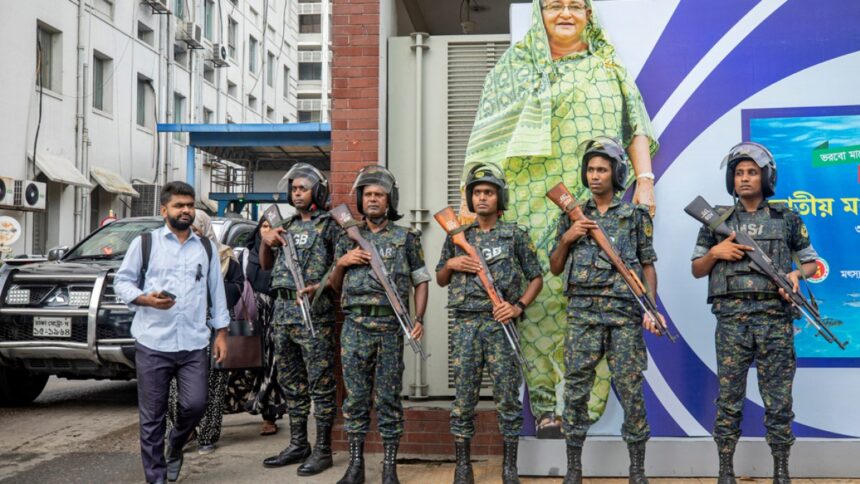A Bangladeshi court has issued warrants for the arrest of former Prime Minister Sheikh Hasina, who fled to India two months ago after being ousted in a student-led uprising.
Mohammad Tajul Islam, the chief prosecutor of Bangladesh’s International Crimes Tribunal (ICT), announced that the court had ordered Hasina and 45 others to appear in court by November 18. The arrest warrants were issued in connection with alleged involvement in massacres and crimes against humanity during a crackdown on student protests.
The student protests initially started as a demand to end the government’s practice of reserving civil service positions for war veterans’ relatives but escalated into calls for Hasina’s resignation. Human rights organizations accused Hasina of using excessive force against protesters, which she denied.
Following weeks of unrest, Hasina resigned and sought refuge in India. She has not been seen in public since her departure, and her diplomatic passport has been revoked by Bangladesh. There is a possibility of her extradition under the bilateral treaty between India and Bangladesh, although political offenses might be exempted.
The controversial International Crimes Tribunal, established by Hasina’s government in 2010, has been criticized by the United Nations and human rights groups for procedural flaws. The court is perceived as a tool for Hasina to eliminate her political enemies, with several cases accusing her of orchestrating mass murder currently under investigation.
The current interim government in Bangladesh, led by Nobel Peace Prize laureate Muhammad Yunus, has taken over the administration in Hasina’s absence. The future plans of Sheikh Hasina remain uncertain, with speculation on whether she will continue to stay in India or move elsewhere.










